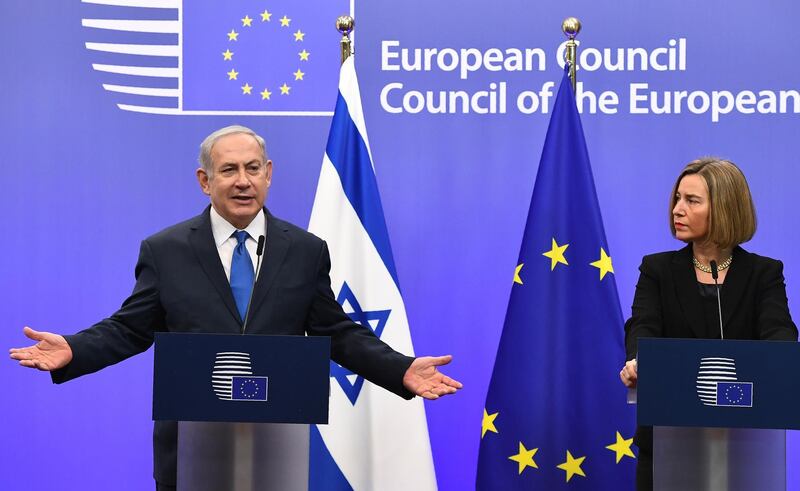The European Union’s foreign policy chief Federica Mogherini has cancelled her planned trip to Israel after an apparent snub from Israeli Prime Minister Benjamin Netanyahu.
She was to take part if a conference organised by an American Jewish organisation and it was to come after an official visit to Jordan. But the Israeli leader’s office told the country’s media that he was unable to meet her because of prior commitments.
But an Israeli source told the country's Haaretz newspaper that "her positions are very hostile" towards Israel.
The European diplomat has long criticised Israel for its use of lethal force in Gaza and its treatment of the Palestinians.
Her office released a statement alleging that “agenda reasons” were behind the cancelled trip.
“We had looked into the possibility of expanding this visit to Jerusalem, where she was invited to speak at the American Jewish Committee. For agenda reasons, it turned out that this was not possible,” the statement said.
“We believe that is important to talk, because there are many important issues in the region to discuss, including Iran. [She] is looking forward to returning to the region in the near future,” Mogherini's office added.
On Friday, Israeli forces killed four Palestinians and wounded hundreds more with live fire and tear gas against protesters in Gaza who have amassed for weekly rallies to oppose conditions in the enclave.
Those deaths bring the total number of Palestinians killed at the Gaza border to 124 since protests there began on March 30, including 60 people killed in a single day last month. But protesters have vowed to continue holding the rallies despite the threat of lethal force.
______________
Read more
Fleeing war, Syrians in Gaza find themselves trapped
Gaza’s ravaged hospitals prepare for more bloodshed as new protests loom
______________
Israel's deadly tactics in confronting the protests have drawn international condemnation, including from Ms Mogherini.
The bloodiest day of the protests took place last month as the United States opened its embassy in Jerusalem after recognising the city as the Israeli capital. Palestinians also want the capital of a state there, and most countries say the city's status should be resolved in future peace talks.
In December 2017, after US President Donald Trump’s Jerusalem announcement, Ms Mogherini said there remained “full EU unity” in support of Jerusalem becoming the capital of both the Israelis and the Palestinians. They maintain that the final status of the city that hosts some of the holiest sites in Islam and Judaism should be agreed between both parties.
She said of Netanyahu’s opinion that other states would follow Trump’s controversial decision that “he can keep his expectations for others – because from the EU member states' side this move will not come”.
The European Union also regularly criticises Israel for its settlement construction in East Jerusalem and the West Bank, outposts that most of the international community consider to be illegal under international law.
It also objected to any of its member states’ ambassadors attending the US embassy opening on May 14 and opposes the Israeli and US opposition to the Iran deal that traded a lifting of sanctions on the Iranian economy for limits on the country’s uranium enrichment programme.






